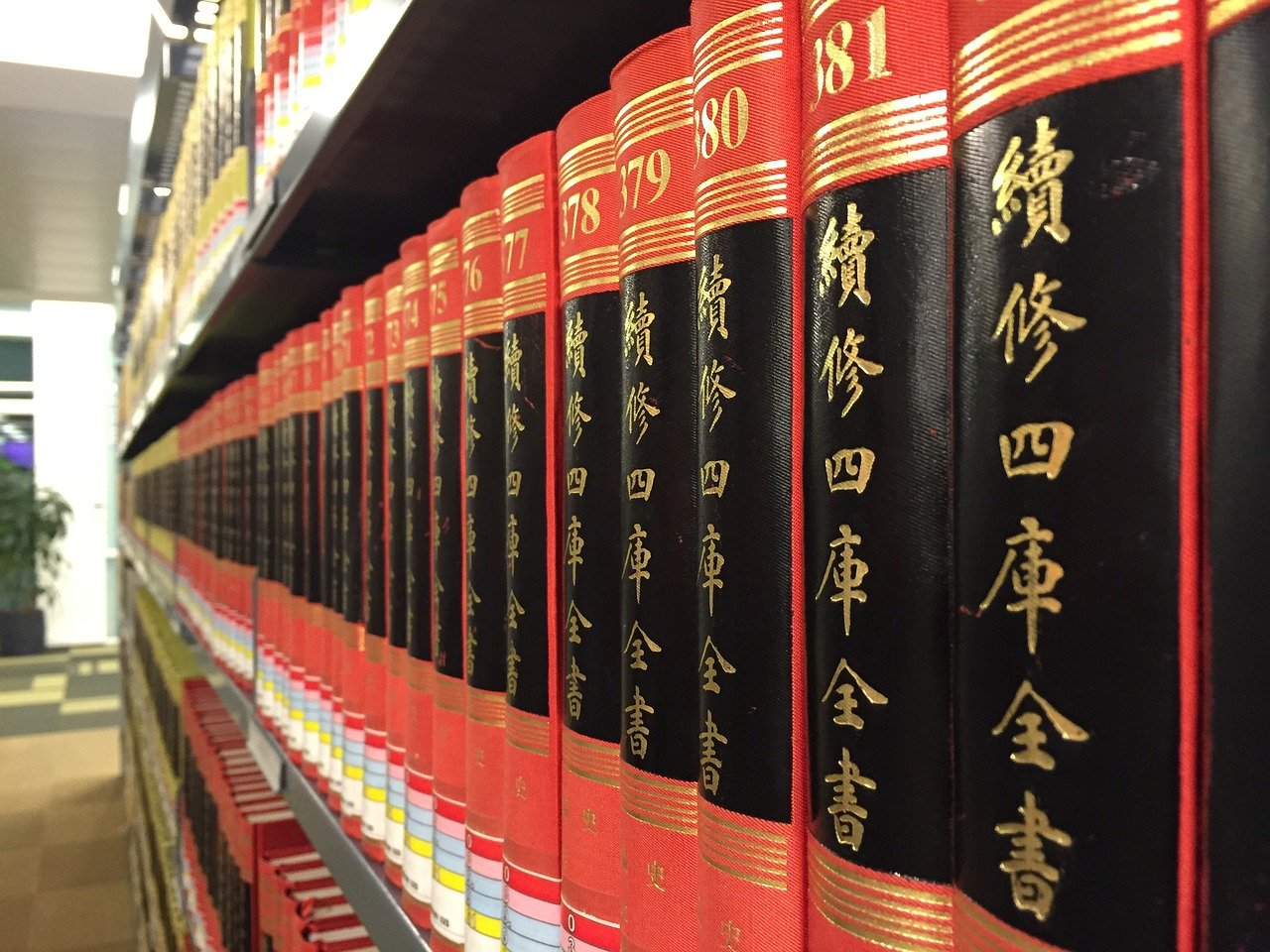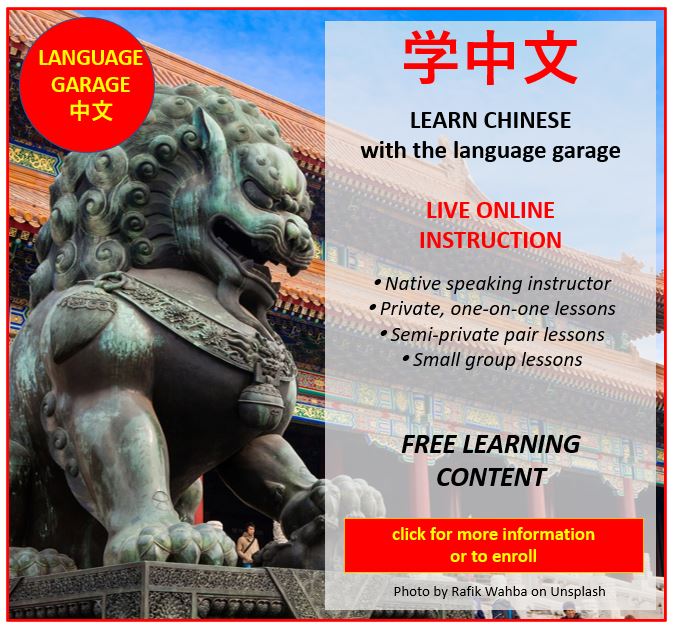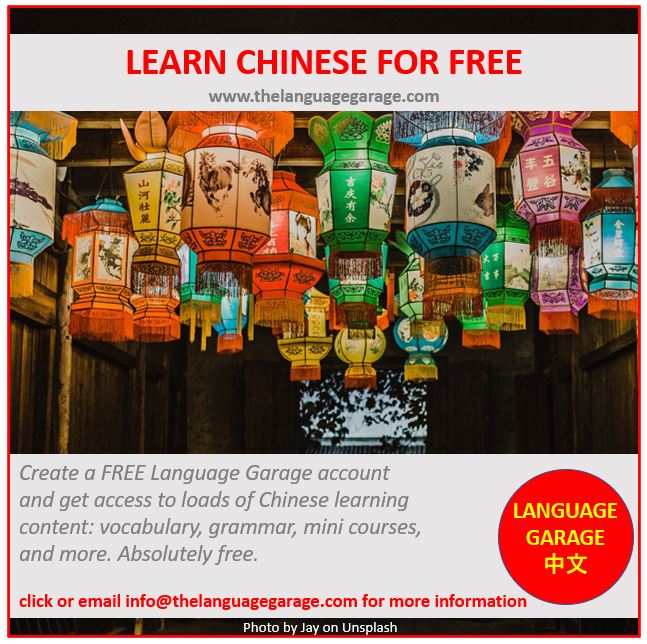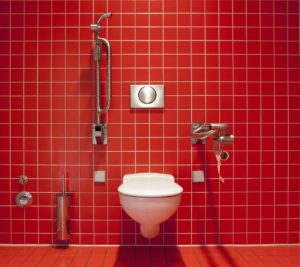Image Credit: Kianhui86 on Pixabay
书!shū! Books!
In this post we’re going to talk about vocabulary and expressions related to books and reading. Let’s start with the basics.
- 书
shū
book - 阅读
yuèdú
to read - 我读了很多书。
Wǒ dúle hěnduō shū.
I read a lot of books.
- 你阅读吗?
Nǐ yuèdú ma?
Do you read books? - 我喜欢阅读。
Wǒ xǐhuan yuèdú.
I like to read. - 你喜欢阅读吗?
Nǐ xǐhuan yuèdú ma?
Do you like to read? - 作者
zuòzhě
author - 诗人
shī rén
poet - 诗歌
shī gē
poem - 这本书的作者是谁?
Zhè běn shū de zuòzhě shì shéi?
Who’s the author of this book? - 写
xiě
to write - 他/她的书写得非常棒。
Tā/Tā de shū xiě de fēicháng bàng.
He/She writes great books. - 谁写的这本书?
Shéi xiě de zhè běn shū.
Who wrote this book? - 书名
shūmíng
title - 这本书的书名是什么?
Zhè běn shū de shūmíng shì shénme?
What’s the title the book? - 封面
fēng miàn
cover - 目录
mù lù
table of contents - 页数
yè shù
page - 读到第几页了?
Dú dào dì jǐyè le?
What page is it on? - 章节
zhāng jié
chapter - 这本书是什么时候出版的?
Zhè běn shū shì shénme shíhou chūbǎn de?
When was the book published? - 谁翻译的这本书?
Shéi fānyì de zhè běn shū?
Who translated the book?
我每天晚上都阅读。Wǒ měitiān wǎnshang dōu yuèdú. I read every night.
Whether you read a lot or a little, you may want to say:
- 阅读是我最喜欢的爱好。
Yuèdú shì wǒ zuì xǐhuan de àihào.
Reading is my favorite hobby. - 我常常随身携带一本书。
Wǒ chángcháng suíshēn xiédài yìběn shū.
I always have a book with me. - 我每天阅读。
Wǒ měitiān yuèdú.
I read every day. - 我读过很多书/杂志/文章/博客。
Wǒ dú guò hěnduō shū/zázhì/ wénzhāng/bókè.
I read a lot of books/magazines/articles/blogs. - 我临睡前都会阅读。
Wǒ línshuì qián dōu huì yuèdú.
I read every night in bed. - 我在网上/手机上/平板上阅读。
Wǒ zài wǎng shang/ shǒujī shang/ píngbǎn shang yuèdú.
I read online/on my phone/on my tablet. - 我是一个书虫。
Wǒ shì yígè shūchóng.
I’m a bookworm. - 我没有时间阅读很多书。
Wǒ méiyǒu shíjiān yuèduú hěnduō shū.
I don’t have time to read very much. - 我很少阅读。我没有阅读很多书。
Wǒ hěnshaǒ yuèdú. Wǒ méiyǒu yuèduú hěnduō shū.
I seldom read. I don’t read much. - 我们城市里有个很棒的书店。
Wǒmen chéngshì lǐ yǒugè hěnbàng de shūdiàn.
There’s a great bookstore in my town. - 我喜欢在图书馆看书。
Wǒ xǐhuan zài túshūguǎn kànshū.
I like to read at the library. - 我从图书馆/我的朋友那儿借过很多书。
Wǒ cóng túshūguǎn/wǒde péngyou nàr jièguò hěnduō shū.
I borrow a lot of books from the library/from my friends. - 我有很多书。
Wǒ yǒu hěn duō shū.
I have a lot of books. - 我每个星期下载一本书。
Wǒ měigè xīngqī xiàzài yìběn shū.
I download a new book every week.
你喜欢看什么类型的书?Nǐ xǐhuan kàn shénme lèixíng de shū? What kind of books do you like?
If you like to read, you probably have a favorite genre.
- 我喜欢看小说。
Wǒ xǐhuan kàn xiǎoshuō.
I like fiction. - 我读小说。
Wǒ dú xiǎoshuō.
I read novels. - 我看短篇小说。
Wǒ kàn duǎnpiān xiǎoshuō.
I read short stories. - 我看戏剧。
Wǒ kàn xìjù.
I read plays. - 我喜欢看非虚构小说。
Wǒ xǐhuan kàn fēixūgòu xiǎoshuō.
I like nonfiction. - 我更喜欢看经典文学。
Wǒ gèng xǐhuan kàn j īngdiǎn wénxué.
I prefer literary classics. - 我喜欢看人物传记。
Wǒ xǐhuan kàn rénwù zhuànjì.
I like biographies. - 我喜欢看关于历史类的书籍。
Wǒ xǐhuan kàn lìshǐleì de shūjí.
I like books about history. - 我看过很多探秘悬疑小说。
Wǒ kànguò hěnduō tànmì xuányí xiàshuō.
I read a lot of mysteries. - 我非常喜欢看科幻小说。
Wǒ fēicháng xǐhuan kàn kēhuàn xiǎoshuō.
I love science fiction. - 我非常喜欢看玄幻小说。
Wǒ fēicháng xǐhuan kàn xuáhuàn xiǎoshuō.
I love fantasies. - 我喜欢看言情小说。
Wǒ xǐhuan kàn yánqíng xiǎoshuō.
I like romance novels. - 我读过很多诗歌。
Wǒ dúguò hěnduō shīgē.
I read a lot of poetry. - 我买过很多艺术类书。
Wǒ mǎi guò hěduō yìshù lèi shū.
I buy a lot of art books. - 我读过很多关于健康和健身类的书籍。
Wǒ dúguò hěnduō guānyú jiànkāng hé jiànshēng lèi de shūjí.
I read a lot of books on health and fitness. - 我更喜欢看商业和经济类的书籍。
Wǒ gèng xǐhuan kàn shāngyè hé jīngjì lèi de shūjí.
I prefer books on business and economics. - 我喜欢看宗教和灵魂类的书籍。
Wǒ xǐhuan kàn zōngjiào hé línghún lèi de shūjí.
I like to read books about religion and spirituality. - 我喜欢看关于政治的书籍。
Wǒ xǐhuan kàn guānyú zhèngzhì de shūjí.
I like to read books about politics. - 我喜欢买烹饪书。
Wǒ xǐhuan mǎi pēngrèn shū.
I love to buy cookbooks. - 我有很多旅游类书籍。
Wǒ yǒu hěnduō lǚyóu lèi shūjí.
I have a lot of travel books. - 我非常喜欢看漫画书。
Wǒ fēicháng xǐhuan kàn mànhuà shū.
I love comic books/manga. - 我们有很多建筑类书籍。
Wǒmen yǒu hěnduō jiànzhù lèi shūjí.
We have a lot of architecture books. - 我和我的孩子一起阅读儿童书籍。
Wǒ hé wǒde háizi yìqǐ yuèdú értóng shūjí.
I read children’s books with my kids. - 教科书非常贵。
Jiàokēshū fēicháng guì.
Textbooks are very expensive.
这是一本很棒的书。Zhè shì yìběn hěnbàng de shū. This is a great book.
Hopefully you enjoy what you’re reading. If that’s the case, you may want to say:
- 我喜欢这本书。
Wǒ xǐhuan zhè běn shū.
I love this book. - 这真是一本好书。
Zhè zhēn shì yìběn hǎoshū.
It’s a really good book. - 这本书很有意思/很激动人心/重要。
Zhè běn shū hěn yǒuyìsi/ hěn jīdòng rénxīn/ zhòngyào.
This book is interesting/exciting/important. - 这本书的文字很优美。
Zhè běn shū de wénzì hěn yōuměi.
This book is beautifully written. - 这个情节很有创意/出人意料。
Zhègè qíngjié hěn yǒu chàngì / chūréyìliào.
The plot is original/surprising. - 他是我最喜欢的小说人物。
Tāshì wǒ zuìxǐhuan de xiǎoshuō rénwù.
He’s my favorite character. - 她是我最喜欢的小说人物。
Tāshì wǒ zuìxǐhuan de xiǎoshuō rénwù.
She’s my favorite character. - 这本书让我爱不释手。
Zhè běn shū rang wǒ àibùshìshǒu.
I can’t put this book down! - 你一定要看这本书。我强烈推荐这本书。
Nǐ yíngdìng yào kàn zhè běn shū. Wǒ qiángliè tuījiàn zhè běn shū.
You have to read this book. I highly recommend it. - 这本书很受欢迎。
Zhè běn shū hěn shòu huānyíng.
This book is very popular. - 这本书是畅销书。
Zhè běn shū shì chàngxiāo shū.
This book is a best seller.
这本书非常糟糕!Zhè běn shū fēicháng zāogāo. This book is terrible!
Of course, not all books are great. If you’re reading something you don’t like, you may want to say:
- 我不喜欢这本书。
Wǒ bù xǐhuan zhè běn shū.
I don’t like this book. - 这本书很糟糕。
Zhè běn shū hěn zāogāo.
This book is terrible. - 这本书很无聊。
Zhè běn shū hěn wúliáo.
This book is boring. - 这本书写得很糟糕。
Zhè běn shū xiěde hěn zāogāo.
The writing is awful. - 这个情节没有创意。
Zhègè qíngjié méiyǒu chuàngyì.
The plot is not original. - 小说人物没有意思。
Xiǎoshuō rénwù méiyǒu yìsi.
The characters are not interesting. - 翻译很糟糕。
Fānyì hěn zāogāo.
This is a bad translation. - 我真受不了那本书/那个作者。
Wǒ zhēn shòubùliào nàběn shū / nàgè zuòzhě.
I can’t stand that book/that author. - 我连第一章都没读完呢。
Wǒ lián dìyīzhāng dōu méi dú wán ne.
I didn’t even finish the first chapter. - 这本书真是浪费时间/金钱。
Zhè běn shū zhēnshì làngfèi shíjiān / jīnqián.
This book is a waste of time/money.
Do you want to learn Chinese?
Check out our other posts on Chinese language, culture, and more. And if you’re looking for convenient and affordable live Chinese lessons with a real teacher, check out The Language Garage. Our lessons are given online in a virtual classroom, so it doesn’t matter where you live or work – we can come to you. And we have flexible options, with a free trial so that you can decide if there’s a fit. Check us out!






